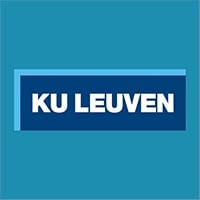Unraveling PRDX1’s function in peroxisomal hydrogen peroxide signaling
Position Details (PhD Research Project)
The Laboratory of Peroxisome Biology and Intracellular Communication investigates how peroxisomes – cellular organelles best known for their roles in lipid and hydrogen peroxide metabolism – also function as hubs in redox, lipid, inflammatory, and innate immune signaling. We study how peroxisomes integrate into intracellular communication networks and how their dysfunction affects human health. We are currently seeking a motivated PhD candidate to join our team and investigate the role of PRDX1 in peroxisomal hydrogen peroxide-mediated redox signaling.
Website unit
Project
Oxidative stress is a key driver of diseases such as neurodegeneration, diabetes, and cancer, yet the underlying molecular mechanisms remain incompletely understood. Hydrogen peroxide (H₂O₂) has emerged as a pivotal redox signaling molecule, acting either through direct oxidation of cysteine thiolate groups or via thiol–disulfide relay systems mediated by highly reactive oxidoreductases such as peroxiredoxins (PRDXs). Peroxisomes are central hubs in cellular H₂O₂ metabolism, but how peroxisomal H₂O₂ (po-H₂O₂) integrates into redox signaling networks is still unclear. This PhD project aims to uncover how PRDX1 mediates po-H₂O₂ signaling. Using proteomics, we will map the po-H₂O₂-induced PRDX1 disulfide interactome, validate key interactions, and investigate their functional impact in disease-relevant models. For the first time, this work will define PRDX1’s role as a modulator and redox relay hub in po-H₂O₂ signaling pathways. As PRDX1 is also emerging as a prognostic marker in solid tumors, the findings will provide valuable insights for both fundamental redox biology and translational cancer research, potentially guiding novel diagnostics and therapeutic strategies.
Profile
- Master’s degree (or equivalent) in biomedical sciences, biochemistry, molecular biology, cell biology, or a related discipline.
- Strong interest in redox biology, signaling pathways, and biomedical research.
- Practical experience with one or more of the following is an advantage: proteomics or mass spectrometry; protein biochemistry (e.g., SDS-PAGE, Western blotting, immunoprecipitation); cell culture, including mammalian cell lines; molecular cloning and genetic manipulation (e.g., CRISPR/Cas9, siRNA); fluorescence/confocal microscopy and/or live-cell imaging; good analytical and problem-solving skills, with an interest in applying quantitative approaches to biological questions; ability to work independently as well as in a collaborative, interdisciplinary team; proficient written and spoken English.
Offer
- A fully funded, 4-year PhD position in a dynamic, international research environment.
- The opportunity to work on a cutting-edge project at the interface of redox biology, proteomics, and translational cancer research.
- Access to state-of-the-art facilities, including advanced proteomics platforms, high-resolution microscopy, and molecular biology laboratories.
- Comprehensive training in mass spectrometry–based proteomics, cell biology, biochemical assays, and data analysis.
- The possibility to present your work at international conferences and publish in high-impact journals.
- A stimulating, collaborative team committed to mentoring and career development.
- Employment and salary conditions according to university and national PhD regulations.
Interested?
For more information, please contact Prof. Dr. Marc Fransen, tel.: +32 16 33 01 14, mail: [email protected].
KU Leuven strives for an inclusive, respectful and socially safe environment. We embrace diversity among individuals and groups as an asset. Open dialogue and differences in perspective are essential for an ambitious research and educational environment. In our commitment to equal opportunity, we recognize the consequences of historical inequalities. We do not accept any form of discrimination based on, but not limited to, gender identity and expression, sexual orientation, age, ethnic or national background, skin colour, religious and philosophical diversity, neurodivergence, employment disability, health, or socioeconomic status. For questions about accessibility or support offered, we are happy to assist you at this email address.



 KU Leuven
KU Leuven